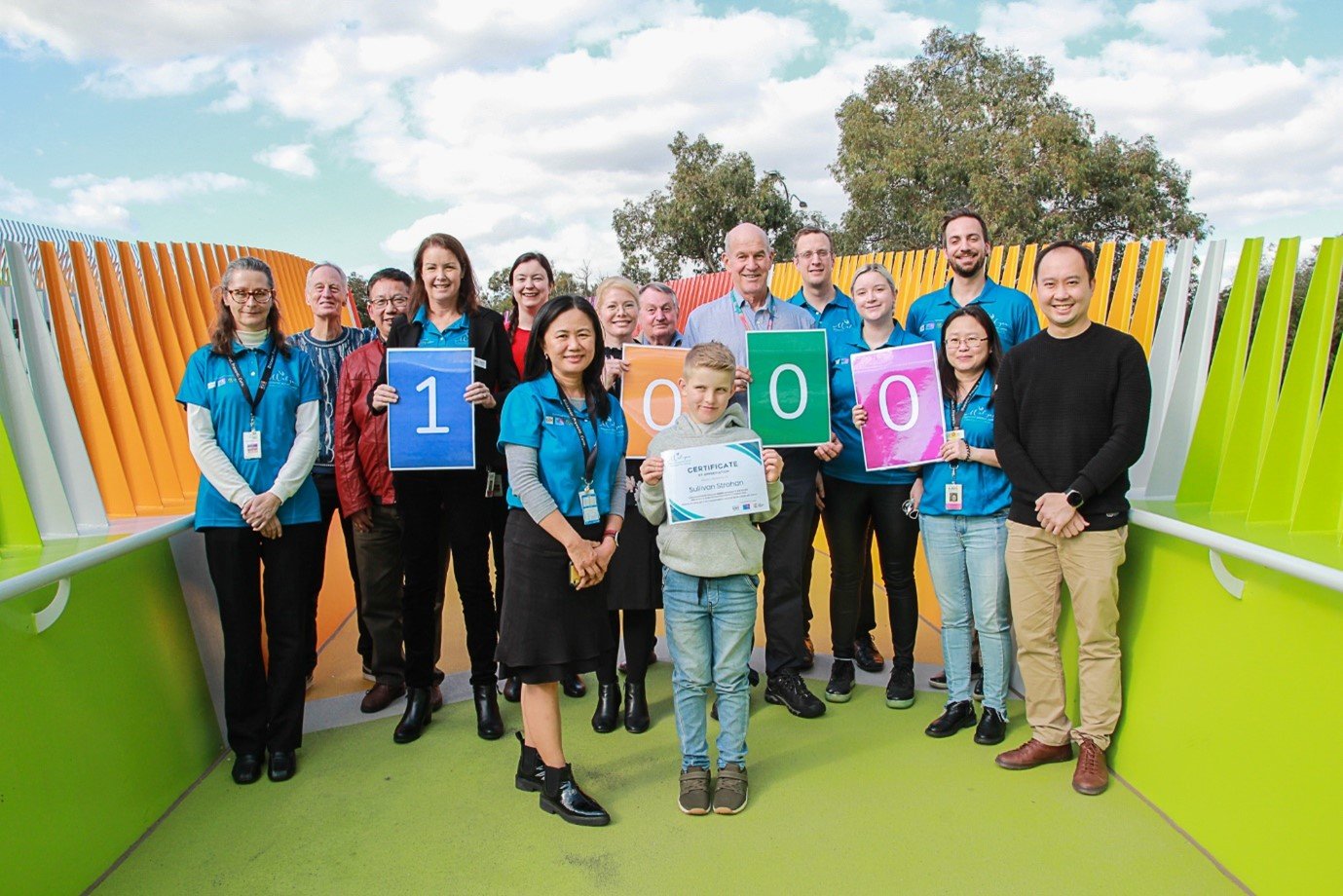Search
Showing results for "Au"
Research
Characterization of a G1P[8] rotavirus causing an outbreak of gastroenteritis in the Northern Territory, Australia, in the vaccine eraIn 2010, a large outbreak of rotavirus gastroenteritis occurred in the Alice Springs region of the Northern Territory, Australia.
Research
The Western Australian family connections genealogical project: Detection of familial occurrences of single gene and chromosomal DisordersThis study utilised a Western Australian (WA) genealogical database for the identification of single gene and chromosome disorders among families.

Our Children’s Respiratory Science team is currently seeking research buddies to provide a community perspective on research into childhood asthma attacks.
Research
Early nasal microbiota and subsequent respiratory tract infections in infants with cystic fibrosisRespiratory tract infections (RTIs) drive lung function decline in children with cystic fibrosis (CF). While the respiratory microbiota is clearly associated with RTI pathogenesis in infants without CF, data on infants with CF is scarce. We compared nasal microbiota development between infants with CF and controls and assessed associations between early-life nasal microbiota, RTIs, and antibiotic treatment in infants with CF.
Research
Bile acids in the lower airways is associated with airway microbiota changes in chronic obstructive pulmonary disease: an observational studyChronic obstructive pulmonary disease (COPD) is a complex disorder with a high degree of interindividual variability. Gastrointestinal dysfunction is common in patients with COPD and has been proposed to influence the clinical progression of the disease. Using the presence of bile acid(s) (BA) in bronchoalveolar lavage (BAL) fluid as a marker of gastric aspiration, we evaluated the relationships between BAs, clinical outcomes and bacterial lung colonisation.
Research
Internet-based third-wave Cognitive Behavioral Therapy (CBT) for reducing stress in parents of children and adolescents with chronic conditions: Systematic review and meta-analysis protocolParents of children and adolescents with chronic conditions have an increased risk of stress-related mental health problems, and reduced quality of life. Third wave Cognitive Behavioral Therapy interventions have been shown to reduce stress in this parent population. Studies demonstrate that this efficacy endures when these therapies are delivered online.
Research
Immune Development in Early Life (IDEaL) longitudinal cohort study protocol: Identifying biomarkers of vaccine responsiveness, respiratory infection, and asthmaEarly-life immune development is a critical factor in predicting the risk of childhood respiratory infections, asthma, and poor vaccine responses. Identifying immune endotypes that predispose children to these conditions could lead to the development of predictive biomarkers and early interventions, potentially improving long-term health outcomes.
Research
Leaving no patient behind! Expert recommendation in the use of innovative technologies for diagnosing rare diseasesGenetic diagnosis plays a crucial role in rare diseases, particularly with the increasing availability of emerging and accessible treatments. The International Rare Diseases Research Consortium (IRDiRC) has set its primary goal as: "Ensuring that all patients who present with a suspected rare disease receive a diagnosis within one year if their disorder is documented in the medical literature".
Research
Vision loss and diabetic retinopathy prevalence and risk among a cohort of Indigenous and non-Indigenous Australians with type 2 diabetes receiving renal haemodialysis treatmentDiabetic nephropathy, vision loss and diabetic retinopathy are frequent comorbidities among individuals with type 2 diabetes (T2D). The Retinopathy in People Currently On Renal Dialysis study sought to examine the epidemiology and risk of vision impairment and among a cohort of Indigenous and non-Indigenous Australians with T2D currently receiving haemodialysis for end-stage renal failure.
Research
Quantifying the impact of contact tracing interview prioritisation strategies on disease transmission: A modelling studyContact tracing is an important public health measure used to reduce transmission of infectious diseases. Contact tracers typically conduct telephone interviews with cases to identify contacts and direct them to quarantine, with the aim of preventing onward transmission. However, in situations where caseloads exceed the capacity of the public health system, timely interviews may not be feasible for all cases. Here we present a modelling framework for assessing the impact of different case interview prioritisation strategies on disease transmission.
